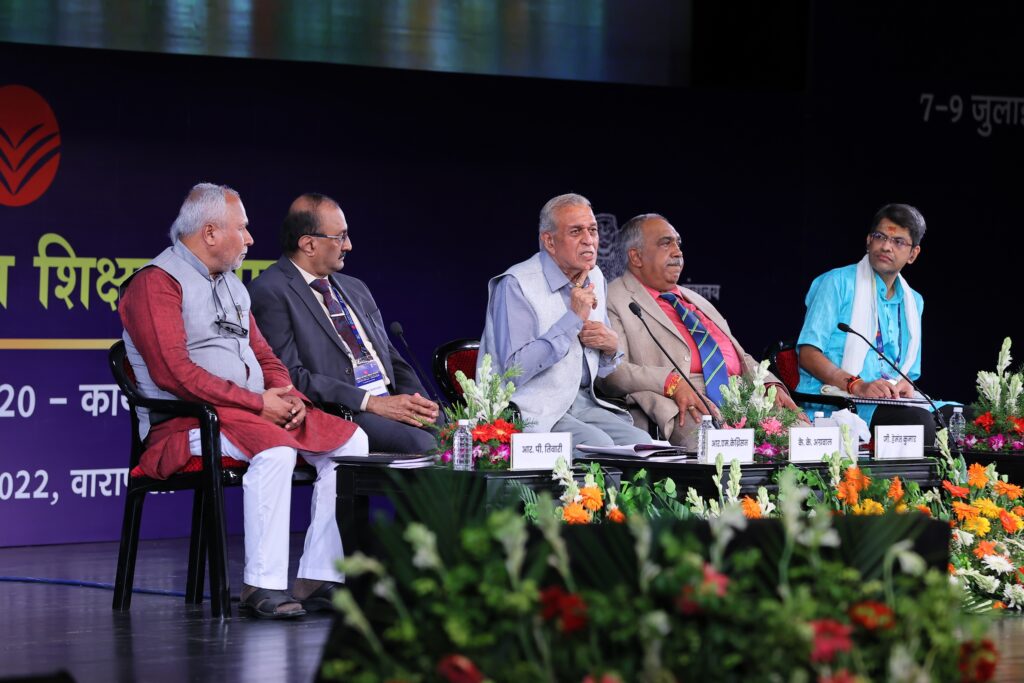In an exclusive interview with BW Education, Prof. K. K. Aggarwal discussed his future plans and how he aims to cultivate the best education beyond boundaries
Nurtured under the leadership of KK Aggarwal, President of SAU, the university has a long way to go. Aggarwal, an engineer by training, is an accomplished academician and administrator. He has served as the former Chairman of the National Board of Accreditation, India, and was the Founding Vice Chancellor of Guru Gobind Singh Indraprastha University, Delhi. With around three decades of experience in education, he has big plans for the institution, having already started by adding more programs for students to provide them with the best education from the best faculties. In an exclusive interview with BW Education, Aggarwal discussed his future plans and how he aims to cultivate the best education beyond boundaries. read more.
Source: BW Education, Poonam Singh, Aug 27, 2024
Prof. K. K. Aggarwal, President of the South Asian University, discusses the evolving landscape of higher education. Highlighting the significance of the National Education Policy 2020 (NEP 20), he emphasizes the need for higher education to extend beyond traditional certificates and degrees. NEP 20 prioritizes quality, flexibility, problem-solving abilities, and holistic education. Prof. Aggarwal underscores the role of teachers in fostering these attributes and aims to integrate them into educational systems through collaborative efforts across SAARC countries. Source: Times of India, TNN / Mar 26, 2024, 13:22 IST

Prof. K. K. Aggarwal Chair the Panel discussion “Quality, Ranking and Accreditation“, Thematic Session-2022.
Source: https://www.education.gov.in/en/nep/quality-ranking-accreditation
Prof. K.K. Aggarwal spoke about the National Accreditation Council (NAC) highlighting the present mechanism of accreditation and assessment in India and the role of the proposed NAC, need for quality accreditation and its parameters, and scaling up of the present mechanism of accreditation for ensuring complete and mandatory accreditation of all higher education institutions in India. He also mentioned about the focus on hand holding the institutions to make them confident to apply for accreditation by way of organizing awareness workshops/courses and Mentorship. read more
Prof. K.K. Aggarwal, Chairman, National Board of Accreditation and Chief Guest of the event delivered the inaugural address and presented an overview of the NEP 2020. He discussed as to how the policy is a much need revision after a period of over 34 years and it is bold one with a great spectrum, talking about early school education till higher education and Ph.D. He emphasized on two most significant changes envisaged in the policy, namely the inclusion of formal education from age 3 as Early Childhood Care and Education (ECCE) which is aimed at promoting better overall learning and development keeping in mind the critical importance of appropriate care and stimulation of the brain in the early years and the inclusion of multi-lingualism and the power of home language/mother tongue. The policy seeks that the medium of instruction until at least Grade 5, but preferably till Grade 8 and beyond, should be in mother tongue/local language/regional language and the teachers are to use a bilingual approach, including bilingual teaching-learning materials. This is supported by a remarkable philosophy that Original and creativity thinking is possible in one’s mother tongue or the language of subconscious mind. The policy states the need to integrate Vocational Education with formal education from Class 6 itself. For more details pleasee click here.
Today India is focusing on its 2nd Education revolution and trying to bring out real changes across educational disciplines. As the first revolution saw a flood of engineering and management schools in the 1990s and early 2000s, the focus was more on increasing the number of institutions rather than quality and practical knowledge.
At the BW Businessworld’s 2nd Engineering Excellence Conclave, K. K. Aggarwal, Chairman, National Board of Accreditation, Governemnt Of India, addressed the audience on the topic ‘Engineering Education in India. What does the future look like?’ at Shangri-La, New Delhi. In his speech, he brought the focus on the need for transformation in the education sector, the importance of practical knowledge, and the relationship of the industries and educational institutions.
On the need of transformation of the country, Aggarwal said, “If India wants to bring the transformation, it is the education which needs to be transformed for reshaping the future of the country”. read more
Source: BW Education, Aman Rawat, Jul 03, 2019
In the Indian context, our existing setup of higher education has served well in raising our post-independent generation mainly by way of establishing and nurturing an effective knowledge delivering system. The emphasis so far had been on accessibility rather than quality, knowledge creation, inventions and innovations. Time has come that we update our priorities and start working on mechanisms that generate high quality educators, scientists, engineers and researchers capable of knowledge creation; entrepreneurship and capability of handling live problems; be sensitive to local needs; and develop the education ecosystem in-phase with ever-changing global requirements. Towards this goal, we as a nation have to develop a mechanism to create/generate a pool of academic leaders with great vision and extraordinary skills to lead our education ecosystem from the front. For more details pleasee click here.
ICT as technology has transformed society on a large scale and has brought in the assurance that good knowledge can certainly make good money. It has made us believe that skills are at times more important than hardcore knowledge itself. ICT technologies have killed the boundary line between knowledge and technology to mandate that both have to work together to make any meaningful beginning
